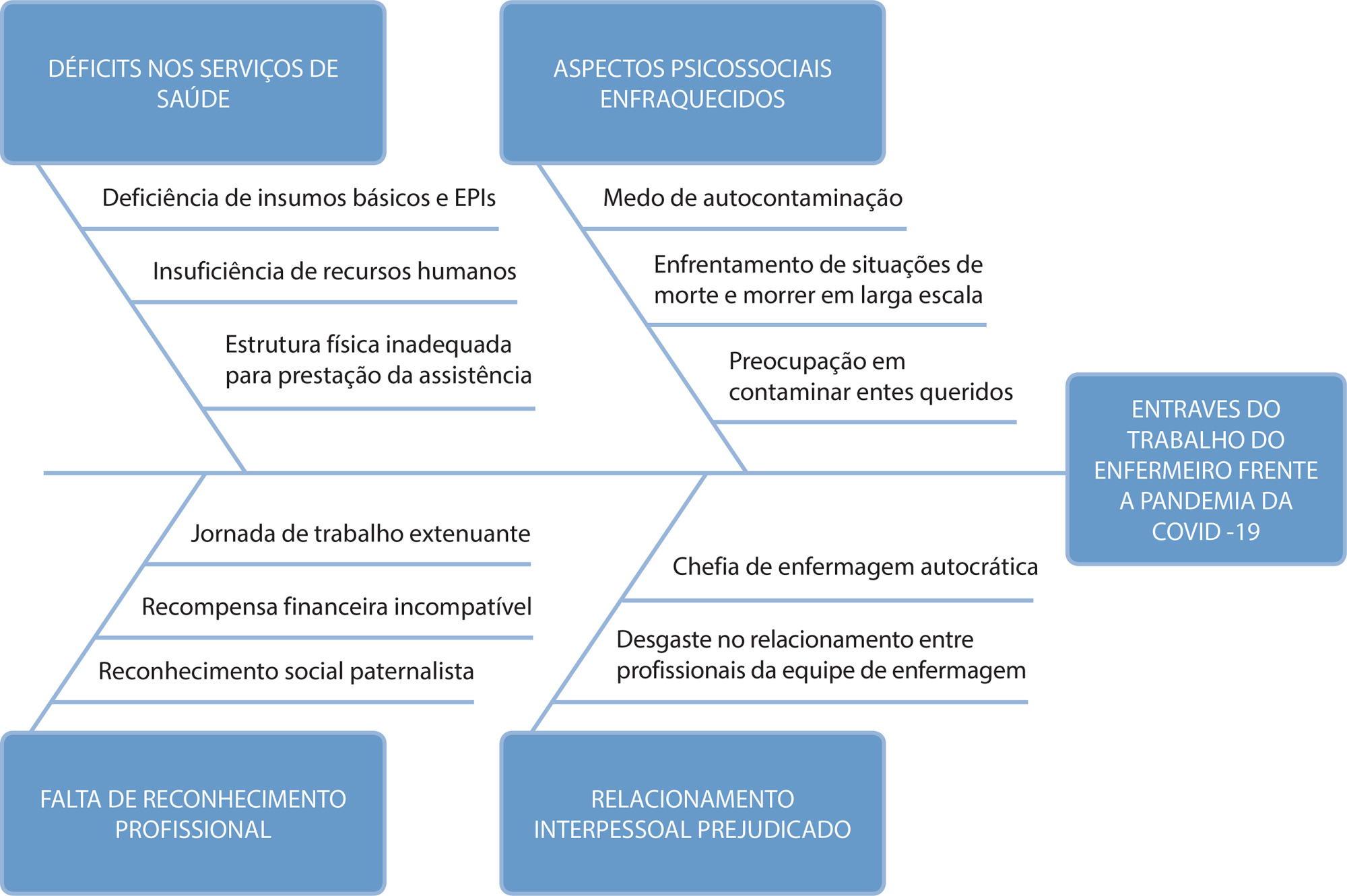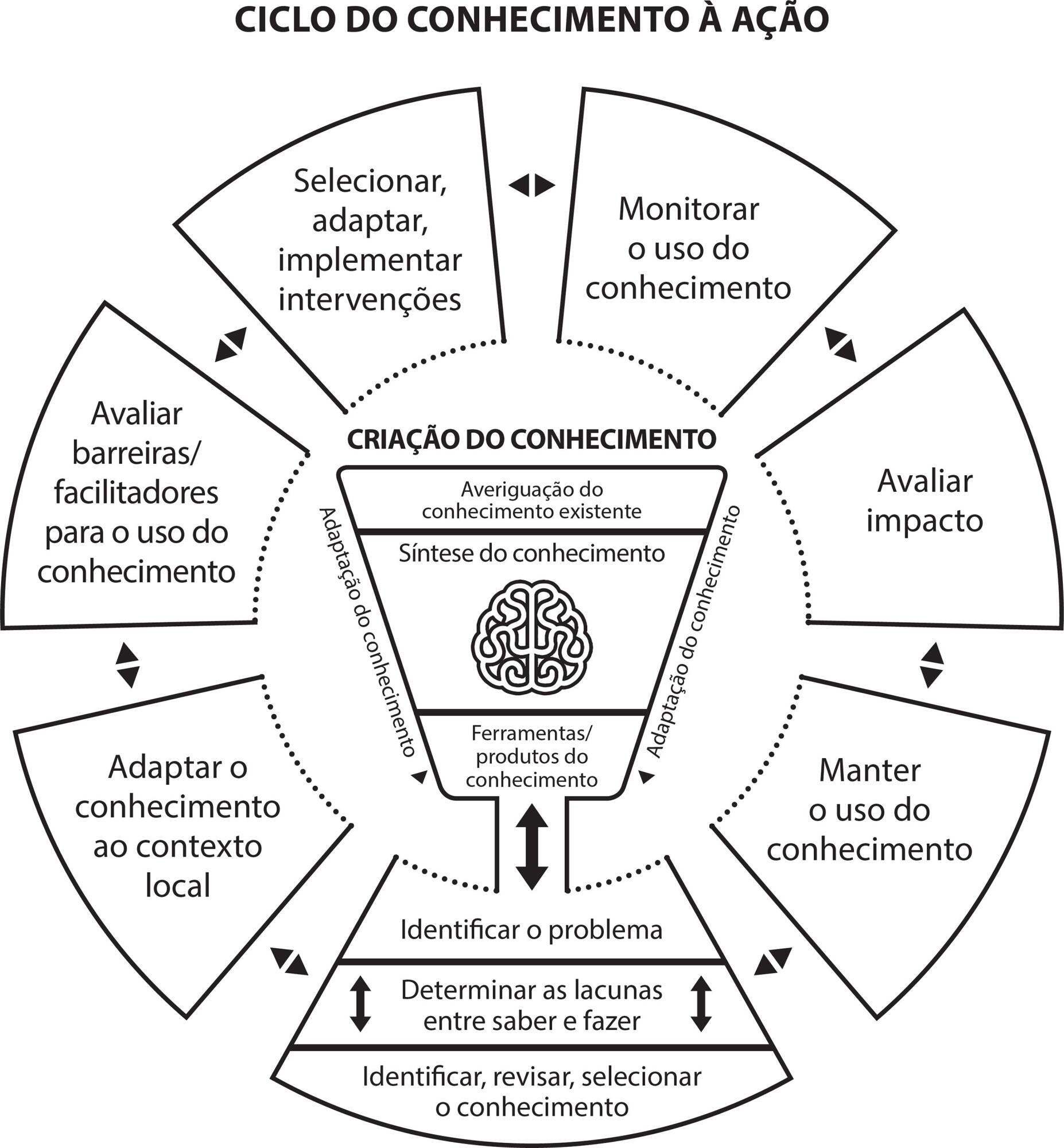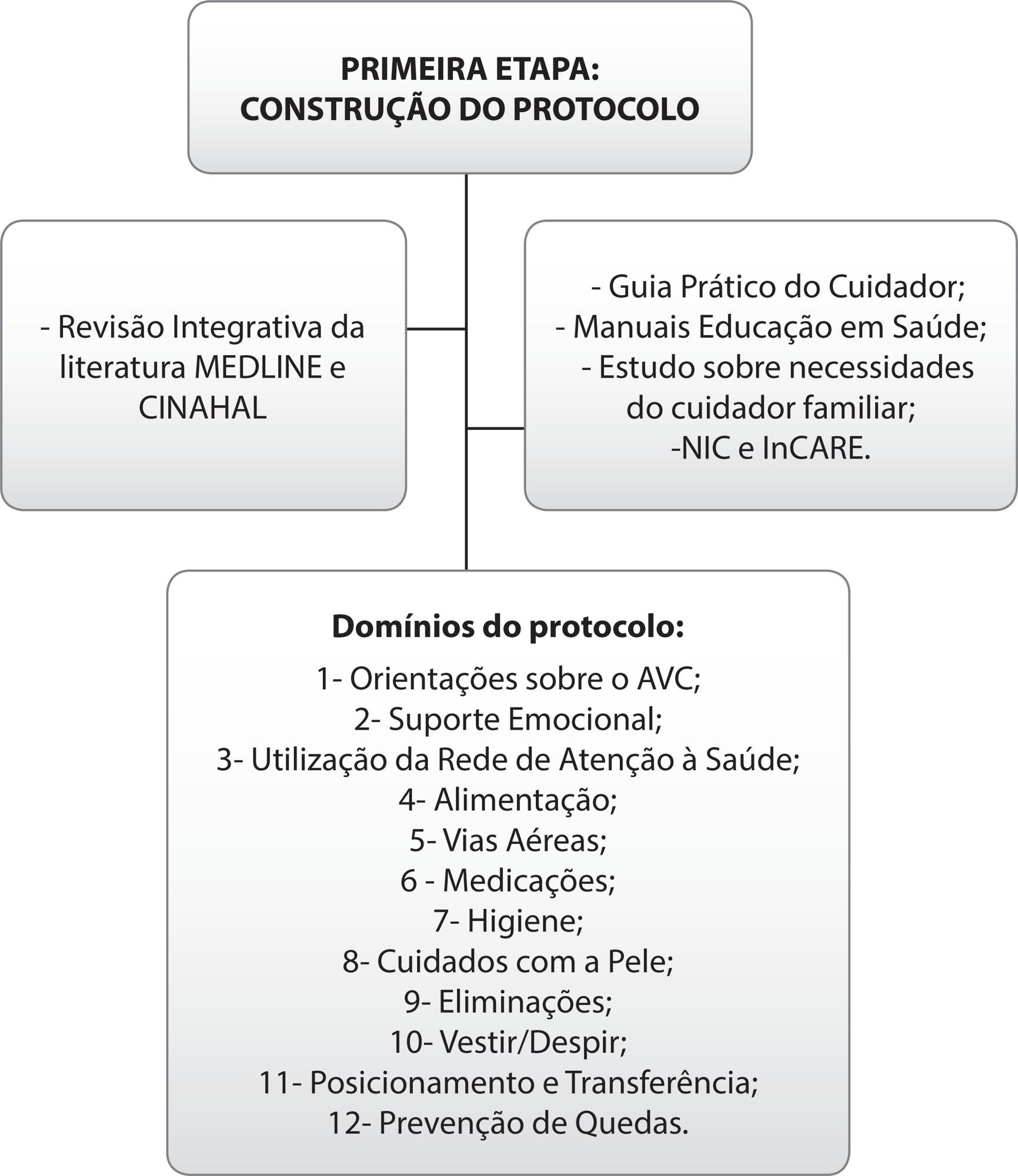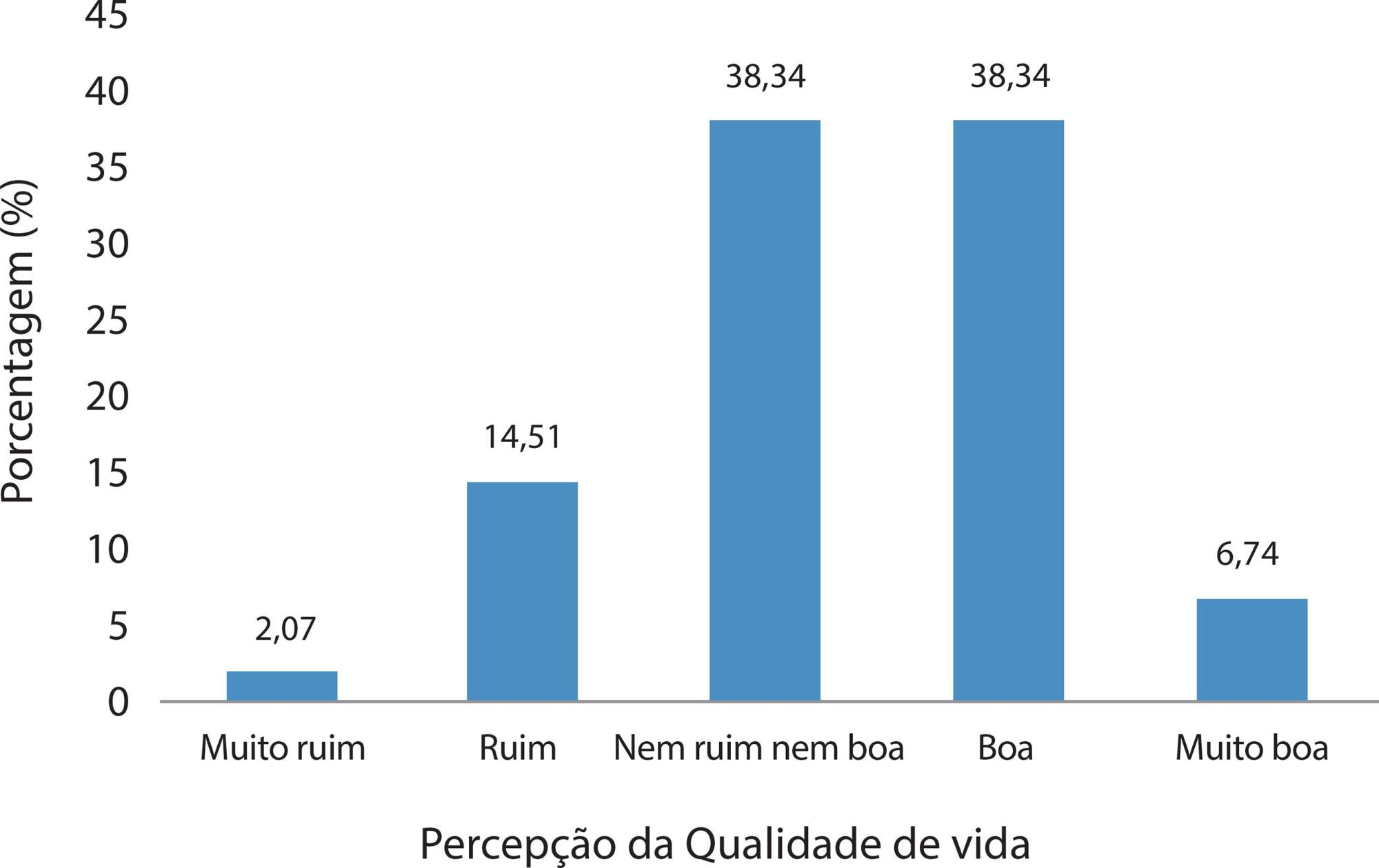-
ARTÍCULO DE REVISIÓN
Telenursing in the postoperative period: a scoping review
Revista Brasileira de Enfermagem. 2024;77(3):e20240066
29/07/2024
Resumo
ARTÍCULO DE REVISIÓNTelenursing in the postoperative period: a scoping review
Revista Brasileira de Enfermagem. 2024;77(3):e20240066
29/07/2024DOI 10.1590/0034-7167-2024-0066
Visualizações0Ver maisABSTRACT
Objectives:
to map available evidence on telenursing use in the postoperative period and its impact on patient outcomes.
Methods:
a scoping review, conducted according to the JBI model and the PRISMA-ScR checklist. The search was carried out in the CINAHL, Embase, LILACS, PubMed, Web of Science, SciELO, Scopus and Cochrane Library databases.
Results:
twelve studies were included, published between 2011 and 2023, 66.6% of which were in developed countries. Of the positive outcomes, we highlight improved levels of disability, autonomy and quality of life, lower rates of post-operative complications, pain and reduced costs. Telephone monitoring was the most widely used modality, but there were few studies in the pediatric context and in Brazil.
Conclusions:
of the studies, 11 (91.6%) identified at least one positive outcome in telenursing use and none showed negative aspects in the postoperative period. The role of nurses in digital health needs further study.

-
ARTÍCULO DE REVISIÓN
Nursing care for hospitalized older adults – fall accidents versus safe mobility: a scoping review
Revista Brasileira de Enfermagem. 2024;77(2):e20230180
19/07/2024
Resumo
ARTÍCULO DE REVISIÓNNursing care for hospitalized older adults – fall accidents versus safe mobility: a scoping review
Revista Brasileira de Enfermagem. 2024;77(2):e20230180
19/07/2024DOI 10.1590/0034-7167-2023-0180
Visualizações0Ver maisABSTRACT
Objectives:
to map the constituent elements of the safe mobility concept present in hospital care for older adults.
Methods:
a scoping review of 35 articles searched in databases and gray literature – BDENF/VHL, Scopus, CINAHL/EBSCO, Embase, Web of Science, PEDro, MEDLINE/PubMed and CAPES Theses and Dissertations Catalog. No time or language cut-off was established.
Results:
none of the studies presented a clear safe mobility concept, however its constituent elements involve factors related to patient (behavioral factors, conditions, diseases, signs and symptoms, nutritional status, age, balance, strength, gait quality, sleep), the institution (environment, treatment devices, guidelines, medications and polypharmacy, material and human resources and clothing/shoes) and the nature of the interventions (related to the patient, institution and family).
Final Considerations:
the constituent elements of safe mobility express hospital units’ capacity to guarantee care and protection from fall accidents for hospitalized older adults.

-
ARTÍCULO DE REVISIÓN
Drug-resistant tuberculosis: integrative review of nursing care in primary health care
Revista Brasileira de Enfermagem. 2024;77(2):e20230097
19/07/2024
Resumo
ARTÍCULO DE REVISIÓNDrug-resistant tuberculosis: integrative review of nursing care in primary health care
Revista Brasileira de Enfermagem. 2024;77(2):e20230097
19/07/2024DOI 10.1590/0034-7167-2023-0097
Visualizações0Ver maisABSTRACT
Objectives:
to identify, in the scientific literature, the care that should be provided to individuals with drug-resistant tuberculosis by nurses in primary health care.
Methods:
integrative review, using the Preferred Reporting Items for Systematic Reviews and Meta-Analyses study selection flowchart. Data collection was conducted in November 2022, across ten databases.
Results:
six studies emphasized that nurses should perform directly observed treatment; two highlighted the importance of integrated care management between tuberculosis and human immunodeficiency virus; two demonstrated comprehensive nursing consultation using the nursing process; one emphasized person-centered care, with discharge planning and improved hospital communication with primary health care services.
Final Considerations:
the care that nurses should provide to individuals with drug-resistant tuberculosis in primary health care, for care resolution, is evidence-based.

-
ARTÍCULO ORIGINAL
Translation and cross-cultural adaptation of the MISSCARE Survey-Ped into Brazilian Portuguese
Revista Brasileira de Enfermagem. 2024;77(2):e20230060
19/07/2024
Resumo
ARTÍCULO ORIGINALTranslation and cross-cultural adaptation of the MISSCARE Survey-Ped into Brazilian Portuguese
Revista Brasileira de Enfermagem. 2024;77(2):e20230060
19/07/2024DOI 10.1590/0034-7167-2023-0060
Visualizações0Ver maisABSTRACT
Objectives:
to translate and cross-culturally adapt the MISSCARE Survey-Ped for use in Brazil.
Methods:
a methodological study proposed by translation, synthesis of translations, back-translation, assessment by a committee of experts and pre-testing with the target population.
Results:
two direct translations of the instrument were carried out, followed by a consensual version between them. This synthetic version was back-translated and analyzed by a committee of five experts in pediatric nursing and patient safety, obtaining a Content Validity Index (CVI) of 0.95 and Cronbach’s alpha of 0.804. The final version was sent for pre-testing with 254 Brazilian pediatric nurses, with 44 (17.3%) analyzing the instrument for understanding (CVI 0.866; Content Validity Ratio (CVR) 0.773), relevance (CVI 0.931; CVR 0.864) and relevance (CVI 0.977; CVR 0.955).
Conclusions:
the MISSCARE Survey-Ped Brasil was considered suitable for application in pediatric nurses’ clinical practice in the country.
-
ARTÍCULO ORIGINAL
Nursing students’ perception: Escape Room use in teaching leadership skills
Revista Brasileira de Enfermagem. 2024;77(2):e20230414
19/07/2024
Resumo
ARTÍCULO ORIGINALNursing students’ perception: Escape Room use in teaching leadership skills
Revista Brasileira de Enfermagem. 2024;77(2):e20230414
19/07/2024DOI 10.1590/0034-7167-2023-0414
Visualizações0Ver maisABSTRACT
Objectives:
to understand nursing students’ perception regarding Escape Room use to develop leadership skills.
Methods:
a qualitative exploratory-descriptive study, with 97 nursing students. Escape Room game sessions were held, totaling ten. Subsequently, a debriefing and analysis was carried out using the Discourse of the Collective Subject method, through the focus group technique. Ethical procedures were respected.
Results:
students’ perceptions about using this methodology to develop leadership skills were positive and significant. The effectiveness of the game in teaching and developing these skills in nursing practice stands out.
Final Considerations:
the game was an effective active methodology in approaching the proposed content, promoting satisfaction and easy assimilation.
-
ARTÍCULO ORIGINAL
Validation of the Brazilian Version of the Modified Scale for Delineating Advanced Practice Nursing Roles
Revista Brasileira de Enfermagem. 2024;77(2):e20230211
19/07/2024
Resumo
ARTÍCULO ORIGINALValidation of the Brazilian Version of the Modified Scale for Delineating Advanced Practice Nursing Roles
Revista Brasileira de Enfermagem. 2024;77(2):e20230211
19/07/2024DOI 10.1590/0034-7167-2023-0211
Visualizações0ABSTRACT
Objectives:
to validate the Brazilian version of the Modified Scale for Delineating Advanced Practice Nursing Roles.
Methods:
this was a methodological study for the clinical validation of an instrument, conducted with 207 nurses working in primary care. Exploratory and confirmatory factor analysis, Cronbach’s alpha test, and z-test for proportion comparison were used.
Results:
the internal reliability of the scale was 0.944, with alpha greater than 0.80 in most domains, except for Education (0.786). In the exploratory factor analysis, considering the criterion of eigenvalue greater than one, eight factors were identified, explaining 79.38% of the variance. In the comparison of proportions, the adequate responses (≥ 2) in the domain of Comprehensive Direct Care, in both analyzed groups, were statistically equal. This domain had the highest score of adequate responses, followed by Education and Systems Support. Insufficient scoring was observed in the domains of Publication and Professional Leadership.
Conclusions:
the instrument demonstrated stability and reliability to be used in the evaluation of advanced nursing practice.
Palavras-chave: Advanced Practice NursingNursingPrimary Health CarePublic Health NursingValidation StudiesVer mais
-
ARTÍCULO ORIGINAL
The use of spirituality/religiosity by oncology nurse residents in nursing care
Revista Brasileira de Enfermagem. 2024;77(2):e20230383
19/07/2024
Resumo
ARTÍCULO ORIGINALThe use of spirituality/religiosity by oncology nurse residents in nursing care
Revista Brasileira de Enfermagem. 2024;77(2):e20230383
19/07/2024DOI 10.1590/0034-7167-2023-0383
Visualizações0Ver maisABSTRACT
Objectives:
to analyze the use of spirituality/religiosity by oncology nurse residents in caring for patients with cancer.
Methods:
a census, descriptive, sectional study, with 46 nurse residents from three public hospitals in Rio de Janeiro. Data collection took place between August 2020 and January 2021, using a sociodemographic questionnaire, including a question about the use of spirituality/ religiosity to deal with work situations. Descriptive analysis was carried out using SPSS software version 22.0.
Results:
participants stated that they use religiosity/spirituality in work situations related to patients or themselves. In relation to patients, death was the most mentioned situation among professionals, and for themselves, everyday situations and emotional vulnerability were the most mentioned.
Final Considerations:
spirituality and religiosity are dimensions that guide oncology nurse residents’ attitudes.
-
ARTÍCULO ORIGINAL
Validation of an instrument for assessing leprosy care in children and adolescents
Revista Brasileira de Enfermagem. 2024;77(2):e20230344
19/07/2024
Resumo
ARTÍCULO ORIGINALValidation of an instrument for assessing leprosy care in children and adolescents
Revista Brasileira de Enfermagem. 2024;77(2):e20230344
19/07/2024DOI 10.1590/0034-7167-2023-0344
Visualizações0Ver maisABSTRACT
Objectives:
to validate the content of an instrument for assessing leprosy care in individuals under 15 years old in the context of Primary Health Care.
Methods:
methodological study of content validation, based on the evaluation of essential and derived attributes in primary care, in the professional version. For data analysis, the Content Validation Index (CVI ≥ 0.8) and Cronbach’s Alpha were calculated.
Results:
a higher percentage of judges among nurses (61.5%) was observed; with a doctorate (46.2%), and engaged in teaching and research (77%). The overall Content Validation Index of the instrument was 0.98. In the analysis of Cronbach’s Alpha of the instrument, the assigned value was 0.717.
Conclusions:
the instrument represents an advancement in the measurement of health evaluation policies and can significantly contribute to improving the quality of care provided to children and adolescents with leprosy.
-
ARTÍCULO ORIGINAL
Uso de tecnologia móvel para o cuidado gestacional: avaliação do aplicativo GestAção
Revista Brasileira de Enfermagem. 2019;72:266-273
13/12/2019
Resumo
ARTÍCULO ORIGINALUso de tecnologia móvel para o cuidado gestacional: avaliação do aplicativo GestAção
Revista Brasileira de Enfermagem. 2019;72:266-273
13/12/2019DOI 10.1590/0034-7167-2018-0641
Visualizações0RESUMO
Objetivo:
avaliar o aplicativo GestAção, com base na experiência de uso das gestantes.
Método:
estudo de natureza avaliativa, aplicada, metodológica, com abordagem quanti-qualitativa. A ferramenta tecnológica foi avaliada por 13 gestantes por meio de questionários para a caracterização do perfil sociodemográfico e o uso da escala de Likert, para calcular o Índice de Validade de Conteúdo (IVC) do aplicativo; e entrevista semiestruturada, com análise fundamentada na Semiótica.
Resultados:
o estudo evidenciou significativo nível de satisfação das gestantes com o uso do aplicativo, considerando os objetivos (IVC= 0,92), estrutura e apresentação (IVC= 0,86), e relevância (IVC= 0,92).
Considerações finais:
o aplicativo GestAção obteve IVC geral de 0,90, evidenciando-o como tecnologia facilitadora e coadjuvante no empoderamento das gestantes interessadas em obter conhecimentos sobre o período gravídico, mostrando-se uma potente ferramenta para qualificar as boas práticas na consulta de enfermagem.
Palavras-chave: Aplicativos MóveisCuidados de EnfermagemGestaçãoPromoção da SaúdeTecnologia em SaúdeVer mais -
ARTÍCULO DE REVISIÓN
Polycyclic aromatic hydrocarbons and development of respiratory and cardiovascular diseases in workers
Revista Brasileira de Enfermagem. 2020;73(3):e20180965
22/04/2020
Resumo
ARTÍCULO DE REVISIÓNPolycyclic aromatic hydrocarbons and development of respiratory and cardiovascular diseases in workers
Revista Brasileira de Enfermagem. 2020;73(3):e20180965
22/04/2020DOI 10.1590/0034-7167-2018-0965
Visualizações0ABSTRACT
Objectives:
to identify the scientific evidence on the development of cardiovascular and respiratory diseases due to workplace contamination by polycyclic aromatic hydrocarbons.
Methods:
integrative literature review. The search for primary articles was held in October 2017 in the Medical Literature Analysis and Retrieval System Online (through Pubmed), Web of Science and Latin American and Caribbean Literature in Health Sciences (LILACS).
Results:
the 16 studies analyzed showed that exposure to polycyclic aromatic hydrocarbons was associated with cardiovascular diseases, such as increased blood pressure, heart rate variation, and ischemic heart disease; and respiratory disorders, such as decreased lung function, chronic obstructive pulmonary disease, asthma, wheeze, coughing, pulmonary wheezing, chest tightness, effort dyspnea, and sore throat.
Conclusions:
polycyclic aromatic hydrocarbons cause deleterious effects on the cardiovascular and respiratory systems through mutations and cellular inflammation, being a risk to exposed individuals.
Palavras-chave: Cardiovascular DiseasesPolycyclic Aromatic HydrocarbonsRespiratory DiseasesVolatile Organic CompoundsWorkersVer mais
-
REFLEXIÓN
Trabalho do enfermeiro no contexto da pandemia de COVID-19
Revista Brasileira de Enfermagem. 2021;74:e20200594
05/03/2021
Resumo
REFLEXIÓNTrabalho do enfermeiro no contexto da pandemia de COVID-19
Revista Brasileira de Enfermagem. 2021;74:e20200594
05/03/2021DOI 10.1590/0034-7167-2020-0594
Visualizações0Ver maisRESUMO
Objetivo:
Refletir sobre o trabalho experienciado pelo enfermeiro no enfrentamento da pandemia de COVID-19 vivenciado em um hospital público do estado do Rio Grande do Norte.
Métodos:
Ensaio reflexivo embasado na vivência profissional em um hospital público de referência para atendimento de pacientes acometidos pela COVID-19 no estado do Rio Grande do Norte. Os resultados foram organizados em duas categorias empíricas, que destacam as potencialidades e entraves do trabalho do enfermeiro diante da COVID-19, apresentados por meio do diagrama de Ishikawa.
Resultados:
Duas categorias emergiram das experiências vivenciadas: Protagonismo da enfermagem na organização dos serviços de saúde para o enfrentamento da COVID-19; e O exercício da gerência dos cuidados de enfermagem na pandemia de COVID-19.
Considerações finais:
Necessita-se valorizar o trabalho do enfermeiro em todos os seus atributos, bem como fortalecer os processos de trabalho interdisciplinares, que colaboram para a superação da crise ocasionada pela pandemia.

-
REFLEXIÓN
Como traduzir o conhecimento científico à prática? Conceitos, modelos e aplicação
Revista Brasileira de Enfermagem. 2020;73(5):e20190179
01/07/2020
Resumo
REFLEXIÓNComo traduzir o conhecimento científico à prática? Conceitos, modelos e aplicação
Revista Brasileira de Enfermagem. 2020;73(5):e20190179
01/07/2020DOI 10.1590/0034-7167-2019-0179
Visualizações0RESUMO
Objetivos:
apresentar o conceito de Tradução e Intercâmbio do Conhecimento tal como vem sendo utilizado na literatura internacional e, em particular, no Canadá. A seguir, descrever um renomado modelo conceitual para orientar a sua implementação, intitulado Ciclo do Conhecimento à Ação.
Resultados:
ilustramos a utilização do modelo no contexto do sistema municipal de atenção básica à saúde no sul do Brasil, na implementação de estratégias de manejo da dor durante a vacinação.
Conclusões:
nesta reflexão teórica, argumentamos sobre a importância de se traduzir o conhecimento científico aos diversos contextos de prática e criar oportunidades de intercâmbio com os usuários desse saber, como profissionais de saúde, gestores, formuladores de políticas públicas, pacientes, familiares e demais grupos de interesse, para promover equidade e qualidade dos cuidados no Sistema Único de Saúde.
Palavras-chave: Competência ClínicaDifusãoDisseminação de InformaçãoTradução do ConhecimentoTranslaçãoVer mais
-
ARTÍCULO ORIGINAL
Construção e validação de protocolo assistencial de enfermagem com intervenções educativas para cuidadores familiares de idosos após Acidente Vascular Cerebral
Revista Brasileira de Enfermagem. 2020;73:e20180894
08/07/2020
Resumo
ARTÍCULO ORIGINALConstrução e validação de protocolo assistencial de enfermagem com intervenções educativas para cuidadores familiares de idosos após Acidente Vascular Cerebral
Revista Brasileira de Enfermagem. 2020;73:e20180894
08/07/2020DOI 10.1590/0034-7167-2018-0894
Visualizações0Ver maisRESUMO
Objetivo:
construir e validar o conteúdo de um protocolo assistencial de enfermagem com intervenções educativas para cuidadores familiares de idosos após Acidente Vascular Cerebral.
Métodos:
estudo metodológico conduzido em três etapas: (1) construção do protocolo por meio de revisão da literatura; (2) pré-teste com equipe multiprofissional, analisado com articulação da literatura; (3) validação do protocolo pela Técnica Delphi.
Resultados:
o protocolo foi estruturado nos domínios: Orientações Sobre a Doença; Suporte Emocional; Utilização da Rede de Atenção à Saúde; Alimentação; Vias Aéreas; Medicações; Higiene; Cuidados com a Pele; Eliminações; Vestir/Despir; Posicionamento e Transferência; Prevenção de Quedas. No pré-teste, oito especialistas avaliaram a clareza e o conteúdo do protocolo. Na validação, houveram duas rodadas pela Técnica Delphi. O protocolo validado foi composto por 12 domínios contendo 42 itens e 240 orientações de cuidados.
Conclusão:
o protocolo qualifica a transição do cuidado após alta hospitalar auxiliando os enfermeiros na prática assistencial no domicílio.

-
ARTÍCULO ORIGINAL
Construction and validation of an educational technology for mother-child bond in the neonatal intensive care unit
Revista Brasileira de Enfermagem. 2020;73(4):e20190083
01/06/2020
Resumo
ARTÍCULO ORIGINALConstruction and validation of an educational technology for mother-child bond in the neonatal intensive care unit
Revista Brasileira de Enfermagem. 2020;73(4):e20190083
01/06/2020DOI 10.1590/0034-7167-2019-0083
Visualizações0ABSTRACT
Objectives:
to describe the process of construction and validation of an educational booklet to promote bonding between mothers and newborns in a Neonatal Intensive Care Unit.
Methods:
methodological study developed through data collection in the literature and with the target audience; construction of the booklet; qualification of the material through validation by judges (health and communication experts/designer) and assessment by the target audience (mothers of at-risk newborns). Data were analyzed descriptively.
Results:
booklet content was validated, obtaining an overall Content Validity Index of 0.92. Appearance was rated “Superior” with 80% percentage. Mothers performed an assessment with 100% agreement between the items.
Conclusions:
the booklet was validated in all domains assessed and can be used by mothers with children hospitalized in the Neonatal Unit.
Palavras-chave: Educational TechnologyIntensive Care Units, NeonatalMother-Child RelationsNursingValidation StudiesVer mais
-
ARTÍCULO ORIGINAL
Perfil dos estudantes que cursam enfermagem: qualidade de vida, sono e hábitos alimentares
Revista Brasileira de Enfermagem. 2020;73:e20190365
10/07/2020
Resumo
ARTÍCULO ORIGINALPerfil dos estudantes que cursam enfermagem: qualidade de vida, sono e hábitos alimentares
Revista Brasileira de Enfermagem. 2020;73:e20190365
10/07/2020DOI 10.1590/0034-7167-2019-0365
Visualizações0RESUMO
Objetivo:
traçar o perfil e analisar a qualidade do sono, qualidade de vida e hábitos alimentares dos estudantes de enfermagem.
Métodos:
estudo transversal, comparativo e correlacional com as seguintes variáveis: características sociodemográficas, índice de qualidade de sono de Pittsburgh, qualidade de vida e hábitos alimentar. 195 estudantes participaram do estudo.
Resultados:
os participantes tinham em média 24 anos. Os resultados demonstraram que o sexo feminino foi prevalente (87,1%); 71,0% dos estudantes apresentaram qualidade de sono ruim; 98,9% faziam uso de aparelhos eletrônicos antes de dormir. A autopercepção da qualidade de vida foi indiferente (38,3%) e quanto à autopercepção de saúde geral, 36,9% expressaram-se satisfeitos. Dentre os participantes, 45,13% consumiam uma porção de fruta e 40,66% duas a três porções de verduras e legumes, diariamente.
Conclusão:
o estudo permitiu traçar o perfil desses estudantes, jovens que estudavam e trabalhavam, sedentários, acima do peso e com qualidade de sono ruim.
Palavras-chave: Comportamento AlimentarEstudantes de EnfermagemInquéritos e QuestionáriosQualidade de VidaSonoVer mais
Búsqueda
Buscar en:
Nuvem de Tags
Adolescente (85) Atenção Primária à Saúde (239) COVID-19 (91) Criança (91) Cuidados de Enfermagem (269) Educação em Enfermagem (151) Educação em Saúde (139) Enfermagem (930) Enfermagem Pediátrica (86) Estudantes de Enfermagem (77) Estudos de Validação (131) Família (87) Idoso (208) Promoção da Saúde (99) Qualidade de Vida (104) Saúde do Trabalhador (86) Saúde Mental (145) Saúde Pública (82) Segurança do Paciente (150) Tecnologia Educacional (100)



